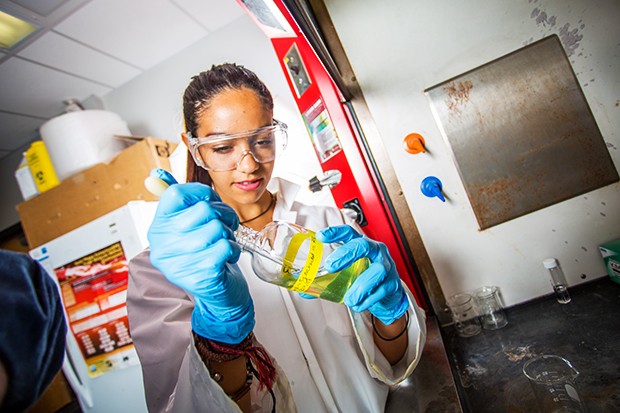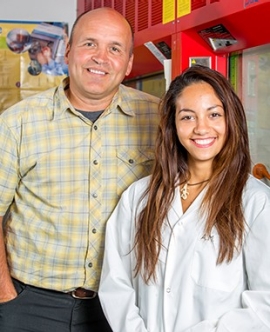For Belmesk, it has been a thrill to spend her summer in Gélinas’ lab. “Amazing,” is how she describes the experience. “It didn’t even feel like work! I had so much fun analyzing my sediment samples and running the data,” she says.
At heart, Belmesk is a pragmatist. “I thought it would be a better idea to do this than work in a restaurant,” she says, “because I would learn at the same time.”
Belmesk was also hoping the internship would afford her some insight into the right choice for her future studies, since the moment of truth is fast approaching. “I have to make my choice this year,” she says. After this summer, she’s more convinced than ever that her future lies in research.
For his part, Gélinas says it was a pure pleasure to work with such a promising young student.
“Lina has done very well,” says Gélinas. “She’s enthusiastic and she’s talented.” Equally rewarding for Gélinas was the idea of giving back to the wider community by opening up his lab to young Quebec students with enormous potential.
As a scientist who came up in the French school system in Quebec, Gélinas says he’s eager to spread the word about the world-class scientific research happening right here in Montreal at Concordia. (“I didn’t even know Concordia had a science campus,” admits Belmesk.) He’s hoping that encouraging young people in the early stages of their interest in science will lead to even more homegrown talent working on important scientific advances.
Now that summer’s over and school is back in, Belmesk is thinking about the year ahead of her at Collège Jean-de-Brébeuf. She’s feeling positive. “I basically did my organic chem class in advance,” she says. “I’m starting class super confident.”
Learn more about Yves Gélina’s views on fracking and the environment.

 Yves Gélinas and Lina Belmesk
Yves Gélinas and Lina Belmesk